Filter by

Escape from Reason: A Penetrating Analysis of Trends in Modern Thought
Truth used to be based on reason. No more. What we feel is now the truest source of reality. Despite our obsession with the emotive and the experiential, we still face anxiety, despair, and purposelessness. How did we get here? And where do we find a remedy? In this modern classic, Francis A. Schaeffer traces trends in twentieth-century thought and unpacks how key ideas have shaped our society.…
- Edition
- -
- ISBN/ISSN
- 9780830834051
- Collation
- Softcover; 124 hlm.; 10.7 cm x 17.7 cm
- Series Title
- -
- Call Number
- 231.042
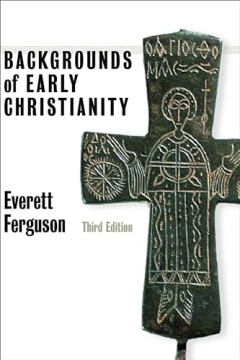
Background of Early Christianity
Having long served as a standard introduction to the world of the early church, Everett Ferguson's Backgrounds of Early Christianity has been expanded and updated in this third edition. The book explores and unpacks the Roman, Greek, and Jewish political, social, religious, and philosophical backgrounds of a good historical understanding of the new testament and the early church. New to this ad…
- Edition
- 3
- ISBN/ISSN
- 9780802822215
- Collation
- Softcover; 647 hlm.; 16.59 x 24.13 cm
- Series Title
- -
- Call Number
- 270.1
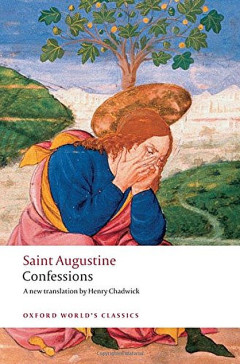
Saint Agustine: Confessions
In his own day the dominant personality of the Western Church, Augustine of Hippo today stands as perhaps the greatest thinker of Christian antiquity, and his "Confessions" is one of the great works of Western literature. In this intensely personal narrative, Augustine relates his rare ascent from a humble Algerian farm to the edge of the corridors of power at the imperial court in Milan, his s…
- Edition
- 3
- ISBN/ISSN
- 9780199537822
- Collation
- Softcover; 352 hlm.; 13.03 x 19.89 cm
- Series Title
- Oxford World's Classics
- Call Number
- 270.2092
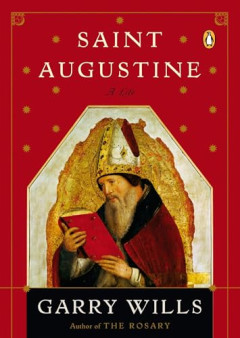
Saint Augustine: A Life
Garry Wills examines this famed fourth-century bishop and seminal thinker whose grounding in classical philosophy informed his influential interpretation of the Christian doctrines of mind and body, wisdom and God. Saint Augustine explores both the great ruminator on the human condition and the everyday man who set pen to parchment. It challenges many misconceptions - among them the myth of Aug…
- Edition
- -
- ISBN/ISSN
- 9780143035985
- Collation
- Softcover; 173 hlm.; 12.7 x 18 cm
- Series Title
- -
- Call Number
- 270.2092
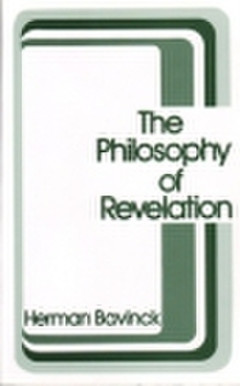
The Philosophy of Revelation
In addition to exegetical, biblical, and systematic theology, "there is room also for a Philosophy of Revelation which will trace the idea of revelation, both in its form and in its content, and correlate it with the rest of our knowledge and life," writes the author, one of the most distinguished Reformed theologians of the twentieth century. "Theological thought has always felt the need of su…
- Edition
- -
- ISBN/ISSN
- -
- Collation
- Softcover; 359 hlm.; 14.4 x 21.5 cm
- Series Title
- -
- Call Number
- 231.7
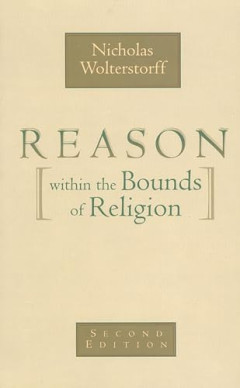
Reason Within the Bounds of Religion
Expanding on his 1976 study of the bearing of Christian faith on the practice of scholarship, Wolterstorff has added a substantial new section on the role of faith in the decisions scholars make about their choice of subject matter.
- Edition
- 2
- ISBN/ISSN
- 0802816045
- Collation
- Softcover; 161 hlm.; 12.5 x 20.3 cm
- Series Title
- -
- Call Number
- 215
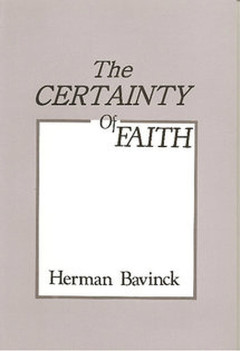
The Certainty of Faith
The timeliness of this book, first published in 1901, is shown by the fact that a great number of academic texts quote from it. "The Certainty of Faith" is one of the small but powerful classics written by one of the greatest theologians Holland has ever produced. Bavinck examines the difference between the certainty of science and that of religion historically, biblically, and theologically.
- Edition
- -
- ISBN/ISSN
- 9780888150813
- Collation
- Softcover; 97 hlm.
- Series Title
- -
- Call Number
- 234.2
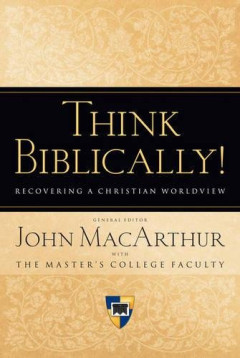
Think Biblically!: Recovering a Christian Worldview
What we think shapes who we are. That's why the Bible tells us, "Do not be conformed to this world, but be transformed by the renewal of your mind" (Romans 12:2a). In a world of differing voices competing for our allegiance, we must learn to "think biblically" so we can distinguish good from evil. God is the Creator of this world; his voice-his Word-must guide our thoughts and our lives. Wit…
- Edition
- 1
- ISBN/ISSN
- 1581344120
- Collation
- Hardcover; 368 hlm.; 15.9 x 24 cm
- Series Title
- -
- Call Number
- 230
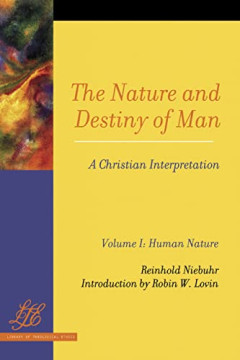
The Nature and Destiny of Man, Vol. 1: Human Nature
The Library of Theological Ethics series focuses on what it means to think theologically and ethically. It presents a selection of important and otherwise unavailable text-English-language texts and translations that have fallen out of print, new translations, and collections of significant statements about problems and themes of special importance - in an easily accessible form. Volumes in thi…
- Edition
- -
- ISBN/ISSN
- 9780664257095
- Collation
- Softcover; 328 hlm.; 15.39 x 23.16 cm
- Series Title
- -
- Call Number
- 233
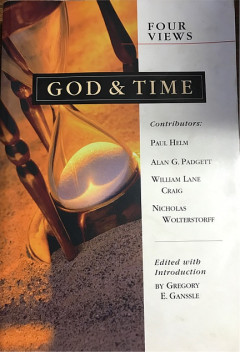
God and Time: Four Views
The eternal God has created the universe. And that universe is time-bound. How can we best understand God’s relationship with our time-bound universe? For example, does God experience each moment of time in succession or are all times present to God? How we think of God and time has implications for our understanding of the nature of time, the creation of the universe, God’s knowledge of…
- Edition
- 1
- ISBN/ISSN
- 9780830815517
- Collation
- Softcover; 256 hlm.; 15.19 x 22.78 cm
- Series Title
- -
- Call Number
- 231.7
 Computer Science, Information & General Works
Computer Science, Information & General Works  Philosophy & Psychology
Philosophy & Psychology  Religion
Religion  Social Sciences
Social Sciences  Language
Language  Pure Science
Pure Science  Applied Sciences
Applied Sciences  Art & Recreation
Art & Recreation  Literature
Literature  History & Geography
History & Geography